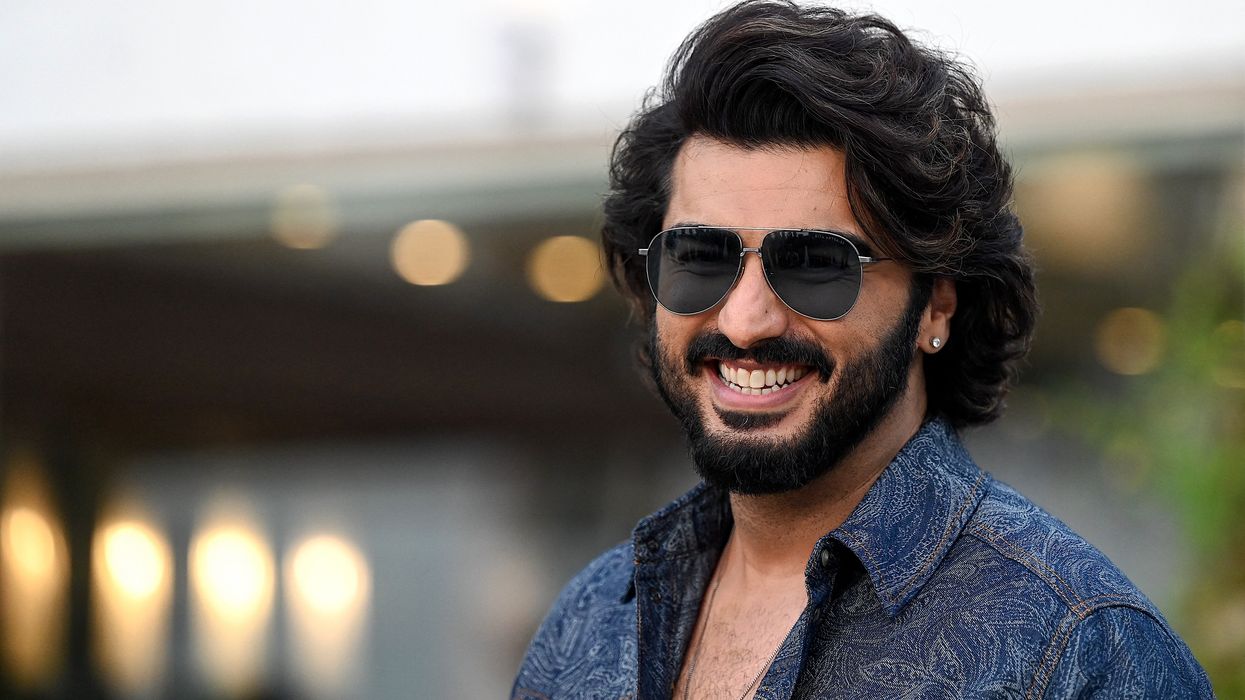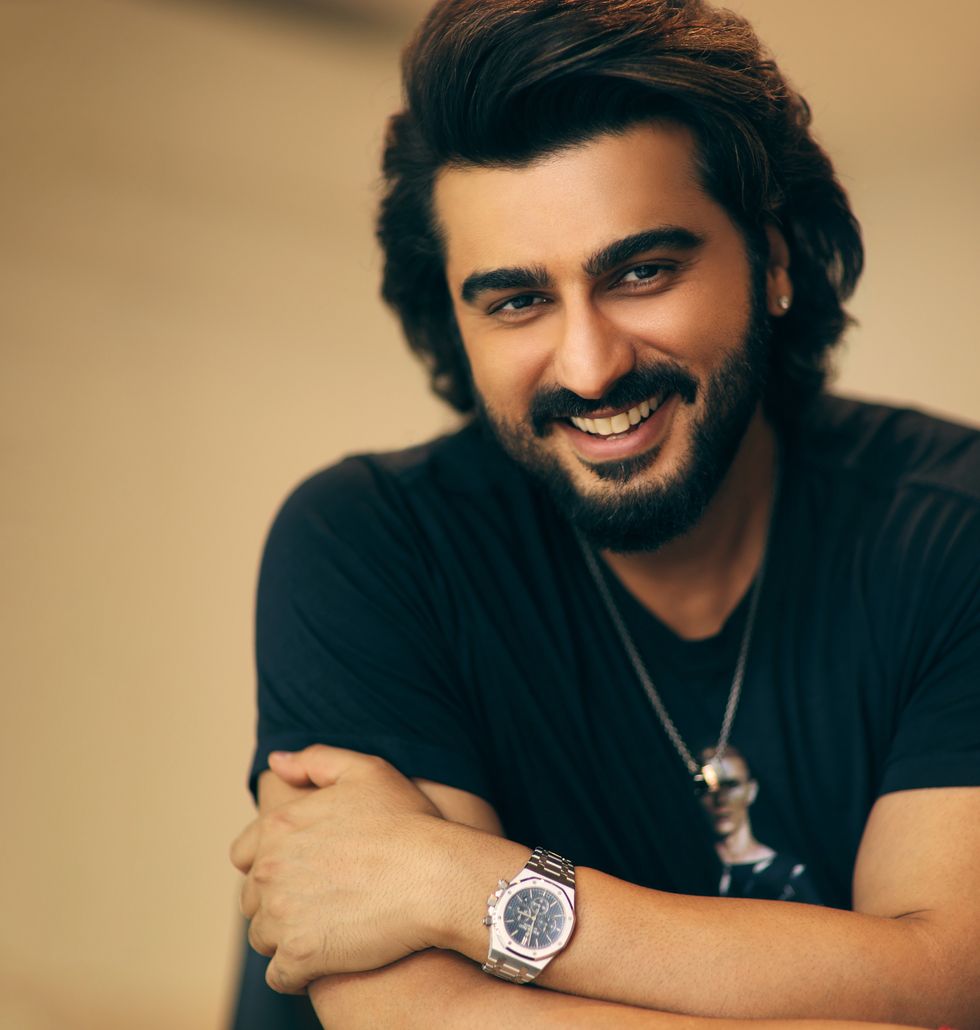ARJUN KAPOOR’s cinematic journey has mirrored the drama of the characters he has portrayed, with highs, lows, and unexpected twists defining his 12 years in the industry.
The latest chapter in this rollercoaster came with his turn as the menacing antago - nist in Singham Again, a mega-budget action entertainer. His widely praised villainous role stood out against a star-studded cast that in - cluded Ajay Devgn, Akshay Kumar, Ranveer Singh, Deepika Padukone, and Tiger Shroff. Kapoor is now looking forward to the next phase of his career, where he hopes to ex - plore diverse roles ranging from heroic leads to dark antagonists.
Eastern Eye spoke to the versatile actor about his journey, Singham Again success, future plans, and passion for cinema.
How do you reflect on your acting journey?
It has been 12 years since Ishaqzaade, and I didn’t know what my fate would be when the film was made. I believed in myself and worked hard, keeping my head down. With Singham Again, receiving this kind of love and reaction, I can say it has been an amaz - ing rollercoaster. You learn to enjoy the ups and downs of a profession when you re - mind yourself how much you love it. That has always been central to my journey.
Tell us more about that.
I constantly remind myself of my love for making and being part of films. I wouldn’t have it any other way. You learn from the past and aim to im - prove, but it has been a fulfilling jour - ney. I have gained valuable lessons, made great friends, explored many fac - ets of life, and experienced different emotions. It has been enriching.
What is the biggest lesson you have learned about yourself in the industry?
I’ve discovered that I am practical, resil - ient, and thick-skinned – qualities you need to survive here. I’ve also realised that my vul - nerability is a strength, not a weakness. Un - derstanding that has been a game-changer.
Would you have done anything differently in your journey?
In hindsight, we all wish we could change some things. But at the time, every decision felt right. I have never made choices under pressure, so I wouldn’t say I regret anything.
What has kept you motivated during difficult times?
My love for filmmaking and being on set has always kept me motivated. I feel like a child on set, and the excitement of telling stories has never faded.
How did you feel when Singham Again was offered to you ?
I’m thrilled that people connected with Danger Lanka. It’s not easy for an antagonist to garner cheers and love, but the audience’s validation is incredibly gratifying. When I signed on to the film, I knew its scale and importance. I loved the franchise and was determined to justify the trust Rohit Shetty and Ajay (Devgn) sir had placed in me. I simply needed the right film and role, and Singham Again provided exactly that.
What was it like stepping out of your comfort zone with this villainous role?
I believe the hint was always there that this is a space the audience enjoys seeing me in. Whether it was Ishaqzaade, Gunday, Aurangzeb, Sandeep Aur Pinky Faraar, or Ek Villain Returns, I have often explored darker or greyer shades. This role, however, was a complete antagonist – fully unhinged, with no moral compass. As an actor, it was both fascinating and different to embody such a character.
What was the experience of shooting this role like?
While shooting, I avoided overanalysing and relied on the conviction of a mainstream director like Rohit Shetty. Looking back now, it was a significant learning experience because it was such a risk. I took it on without knowing how the audience would respond. I believed I could deliver, and I think it has come together well – though it’s still too early to fully assess it.
How much does the positive response to your performance in Singham Again mean to you?
It means a great deal because I want to tell more stories, take on many more films, and continue evolving as an actor who entertains and connects with audiences. The audience’s validation and appreciation for my work in a film of this scale energises me to move forward, knowing that taking risks can pay off.
What is the plan going forward?
What excites me most is being one of the youngest actors to dive into such a dark space. I’m thrilled to have this avenue open to me and look forward to more interesting roles like this. At the same time, I want to explore different spaces, play fun characters, and avoid being typecast. I want to embrace positive, negative, and grey roles across diverse genres – all while enjoying the process.
Is it true that you want to produce and direct films as well?
Absolutely. I want to do both, but only when the time, subject, and circumstances are right.
What can you tell us about your forthcoming projects?
At the moment, I’m exploring new opportunities. It’s an exciting time, and I’m taking in all the love that I’ve received. I plan to sit down and carefully analyse the options I have, and I hope to share clarity soon.
What kind of movies do you love watching as an audience?
I enjoy watching all kinds of films. That’s why I’m so obsessed with movies. I’ve always been a fan of Guy Ritchie’s work and have a soft spot for his films.
Will you make a New Year’s resolution?
No, I don’t believe in making resolutions on a specific day. As they say, man proposes, and God disposes. I prefer focusing on ticking off goals daily, weekly, or monthly, rather than waiting for the new year. Resolutions can set you back if they don’t work out, so I believe in consistent progress instead.
What inspires you as an actor today?
What inspires me is the ability to live vicariously through the roles I play and to connect with audiences on an emotional level. Whether it’s making them laugh, cry, or feel fear, the idea that my work can touch lives is deeply fulfilling. The process of entertaining and connecting is what keeps me going.
Tell us more about that.
Every piece of work evokes an emotional response, whether big or small. It’s overwhelming when you meet people from different parts of the world who have been impacted by your films.This profession is incredibly enriching – you get to experience diverse cultures, personalities, and stories while continually learning and evolving. So, it’s quite a wellrounded profession that way.
Why do you love cinema?
Cinema has the power to connect people emotionally, no matter the language or origin of the story. Watching a film in a theatre with 300 others creates a shared experience – laughing, crying, or connecting as a community. That’s the beauty of storytelling – it brings people from all walks of life together, resonating with one shared narrative at that moment. It’s an unmatched experience.





